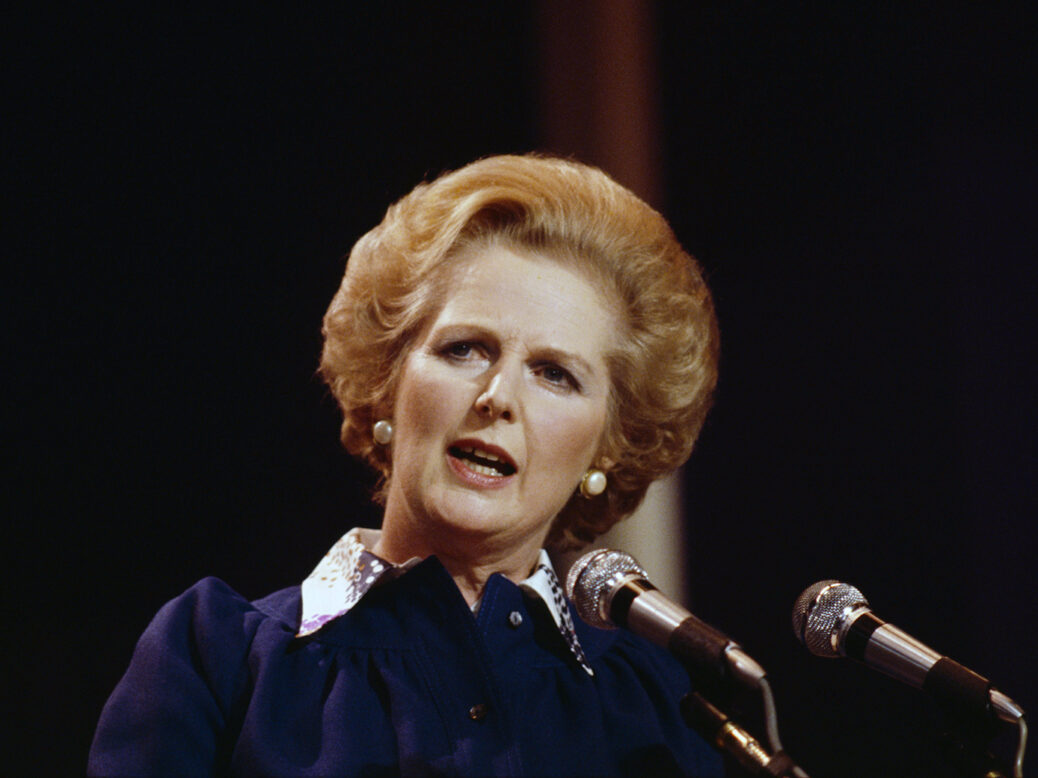
In 1975, Margaret Thatcher declared: “The other side have got an ideology… we must have one as well.” Liz Truss is of a similar mind. As Stephen Bush reported in the New Statesman last year, she would complain to her aides “when they would draft remarks criticising Jeremy Corbyn for being ‘ideological’, telling them that the only good thing about Corbyn was that he had a clear ideology”.
Truss is far from the first Conservative prime minister in recent history to cut taxes. David Cameron’s government abolished the 50p income tax rate and reduced corporation tax from 28 per cent to 19 per cent. But whenever possible, Cameron and George Osborne would clothe their actions in progressive garb (recall “we’re all in this together”). By contrast, Truss clothes regressive policies in regressive garb. She unashamedly dismisses the issue of wealth distribution in favour of a rhetorical focus on wealth creation, thus ignoring the question of why there are numerous economies that are both richer and more equal than the UK (Germany, France, the Nordic states, Australia and New Zealand).
The historical echoes are obvious. “He would rather that the poor were poorer, provided that the rich were less rich,” Thatcher declared at her final Prime Minister’s Questions after the Liberal Democrats’ Simon Hughes rebuked her for widening inequality.
Thatcher’s approach appalled social democrats and One Nation Tories – but it won the Conservatives three general election victories. Can Truss emulate her triumph?
Whether she can or not, the material forces that created the conditions for Thatcherism no longer exist. In 1979, the Tories inherited a country in which the state still owned vast swathes of the economy, the trade unions were a formidable force, and the top rate of tax was 83 per cent.
By dismantling these pillars, Thatcher was able to enact a policy revolution that did little to boost national growth but that enriched key sections of the electorate. The privatisation of council homes allowed better-off tenants to become homeowners; the privatisation of national utilities allowed them to become shareholders. The evisceration of the trade unions enabled the triumph of capital over labour. The creation of the European single market (which Thatcher championed) boosted British trade. The deregulatory “Big Bang” in the City of London created a boom in private credit. The black gold of North Sea oil helped fund tax cuts for the rich and unemployment benefits for the poor.
In short, Thatcherism created the British economy of today: prosperity for the few and austerity for the many. For this reason, Truss cannot repeat the free-market revolution that was unleashed 40 years ago. There is little left to privatise and the UK is already, by Western standards, a deregulated and low-tax economy. As Thatcher once remarked in a different context, “you can’t make a soufflé rise twice”.
After more than a decade of wage stagnation, voter animus is more likely to be directed towards miserly bosses than militant trade unions. Tax cuts, the public know, won’t compensate for wage cuts. The British Social Attitudes survey, published today (22 September), shows that a mere 6 per cent believe the government should cut taxes, compared with 52 per cent who believe it should increase them and spend more on public services. The biggest obstacle to growth is not an excess of taxation but a dearth of investment and dismal productivity (only Italy and Canada spend less on research and development among the G7 countries).
This, it is crucial to emphasise, does not mean Truss cannot win – her decision to freeze household energy prices for two years demonstrated a more pragmatic side. But it does mean that she cannot be a 21st-century Thatcher. In today’s Britain, as Jim Callaghan remarked of the end of the Keynesian era, that option no longer exists.
[See also: Will Liz Truss’s gamble on growth pay off?]





